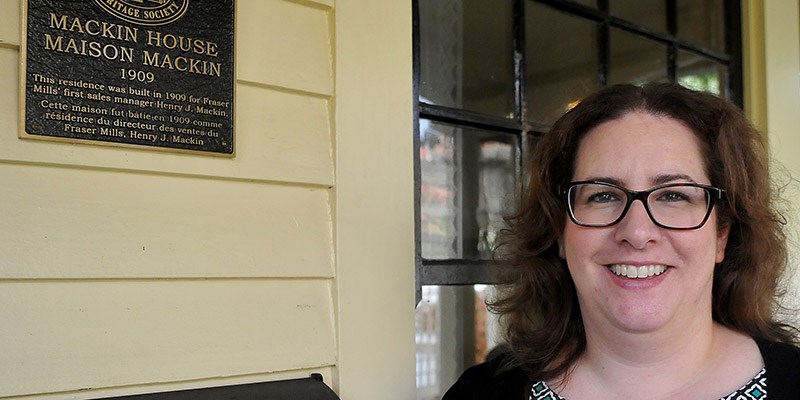This past summer, five assistants at Coquitlam’s Mackin House Museum had a breakthrough — a creative one of sorts.
They wanted to show what kind of medicine and medical practices were used in the city during the early 1900s, around the same time Riverview Hospital — or as it was called then, Essondale — was founded.
Dezirae DaCosta, Kendall Kloosterman, Rosemarie Gresham, Ankit Dassor and Calvin Cheng researched the era and decorated the rooms inside the Edwardian home to create scenes, employing artifacts from the city’s Riverview reserve as well as from the personal collection of retired head nurse Anna Tremere.
With the help of Mackin heritage manager Jasmine Moore, they also secured vintage clothing from Vancouver fashion historian Ivan Sayers.
Their results are a fascinating look at what it was like to be a homebound patient in Coquitlam’s pioneering days. “We wanted to talk about how different medicine is now compared to the early 1900s,” said Candrina Bailey, executive director of the Coquitlam Heritage Society. “It was reality for many in a rustic environment.”
The self-guided exhibit, titled Science & Social Change, begins with a handcrafted wheelchair from Riverview, a wooden object at least 100 years old.
Up the stairs, true stories unfold from made-up persona.
In the boarder’s room lies Lance Corporal Frankie Buchanan who, like other Coquitlam veterans, fought in the Battle of the Somme in World War I. He returned to Fraser Mills — at the time, the city’s biggest industry — with shell shock and temporary blindness.
In the next room, there are descriptions of medical careers at the turn of the 20th century, when doctors made house calls in three-piece suits. There’s also a Riverview nurse uniform, complete with a hidden key under her apron.
In the parents’ room is a reproductive health exhibit, featuring the fictional character of Jacqueline Laqueman who is suffering from pre-eclampsia, a pregnancy complication common during that time that took many mother’s lives.
And in the children’s room is Edmund McCombe, a victim of the 1918 flu: a pandemic that killed more people that WWI. His room features a 1920s microscope from Riverview.
Downstairs, in the kitchen, the museum also has laid out examples of food, which was starting to be packaged as a result of the war efforts, and cookbooks.
As well, on the table, visitors can combine herbs to make their own healing tea to brew at home. Among the therapeutic ingredients are spearmint, lemon balm, ginger, jasmine and even catnip.
Bailey, who took over the executive director role in July, said Science & Social Change was created for under $1,000.
“It’s been a very exciting project for us,” she said.
• Mackin House Museum (1116 Brunette Ave., Coquitlam) is open Tuesday to Friday from 11 a.m. to 5 p.m. and Saturday from noon to 4 p.m. The exhibit ends Nov. 30. Call 604-516-6151 or visit coquitlamheritage.ca.



